A “bistro” is defined as “a small restaurant, serving moderately priced simple meals in a modest setting with alcohol. Bistros are defined mostly by the foods they serve. French home-style cooking, and slow-cooked foods like cassoulet, a bean stew, are typical.” Much like its namesake eatery, AMERICAN BISTRO is slow-cooking and like cassoulet or stew, finds almost everything but the kitchen sink thrown into the mix. Unfortunately, some of what’s thrown into the cinematic pot spoils what could be a very tasty film given its flavorful ingredients.
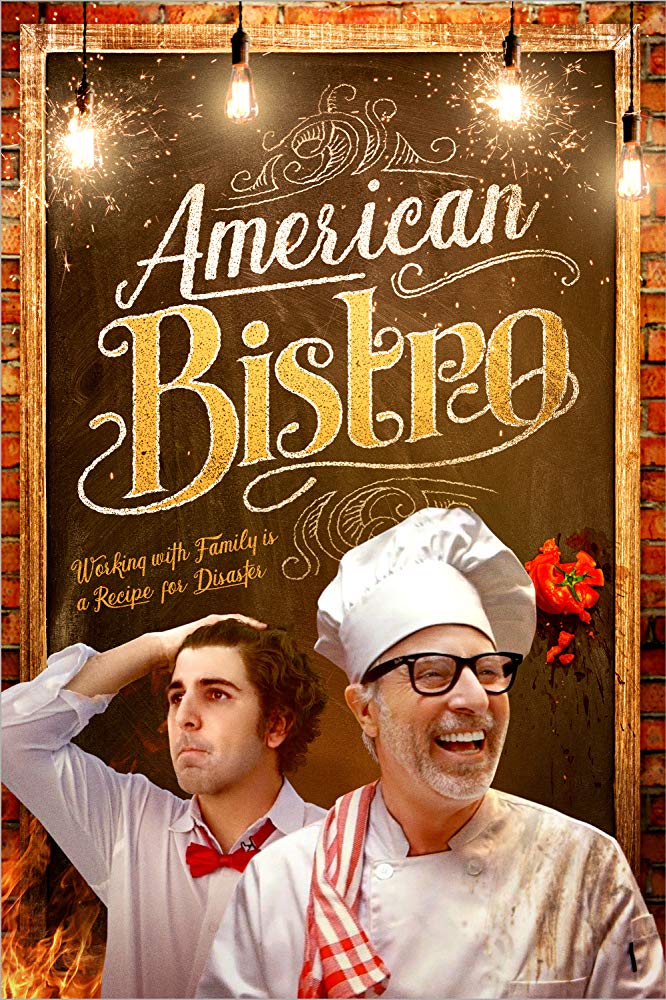
Rule One for any filmmaker, unless you are making a parody or full-on raunchy comedy filled with gross-out humor, having people vomit – and to show the vomit – a minimum of at least five times during a film set against the backdrop of a bistro and food is NOT a good idea. Having said that, if you can make it to the 20-minute mark of AMERICAN BISTRO, but for a few more unsettling moments, your patience will be rewarded.
Written and directed by Arthur Diennet, AMERICAN BISTRO is the story of broken-hearted Edmund and his uncle Medor, also broken-hearted. Both had been living with the illusion that their lives were perfect; they were living the dream. But now, Edmund has lost the love of his life while mild-mannered accountant Medor walks in on his wife and his boss in flagrante delicto, turning his life upside down. After a night of drunkenness, vomiting, peeing off balconies and rooftops, and a revelation by Edmund that he dropped out of college and stashed all of his tuition money, the two decide to make Medor’s longtime dream of being a chef, a reality.
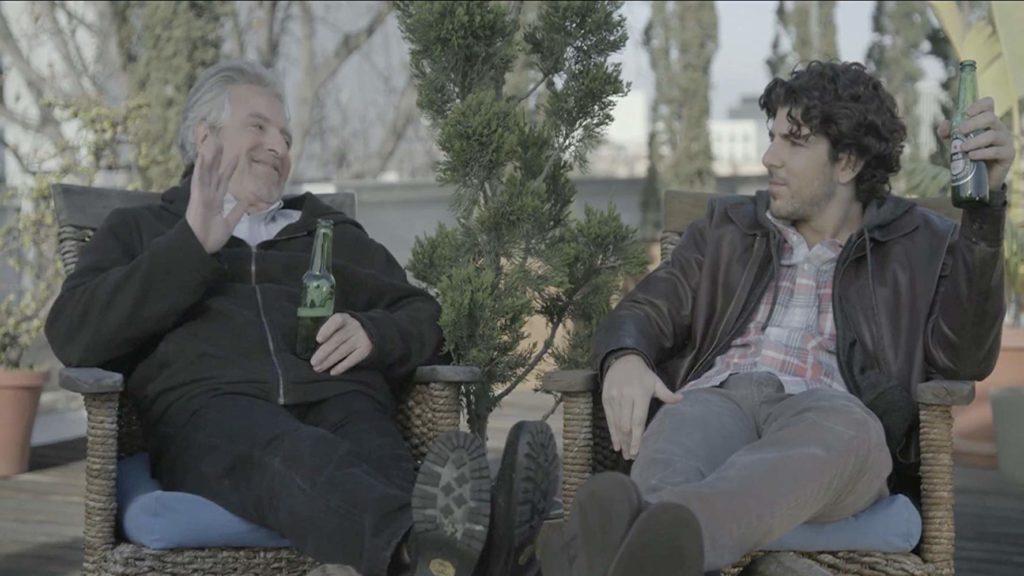
The next morning, picking up piles of money from under piles of vomit, Medor sets off and buys a rundown abandoned restaurant. On the flip side, on awakening from his drunken stupor, Edmund suddenly remembers what he’s done and realizes he has no life, no money, and has no choice but to join his uncle in at least making his dream come true.
Some truly enjoyable and fun comedic moments ensue as the pair embark on restoration of the restaurant and the hiring of employees, the latter being one of the funniest montages of the film, although culminating with Edmund emerging from a field of smoke pointing and shooting a gun – albeit a paint gun – at prospective employees is more than disconcerting. Along the way, however, we are privy to some of the more unseemly sides of life and business with payoffs to ensure the restaurant gets clearance to open (which bodes a charming performance by Sam Dissanayake as Inspector Jeltz), a shystery competitor, an omnipresent knife in the back to Medor with the appearances of his former boss and soon-to-be ex-wife, homelessness courtesy of a plot point beautifully executed by Bill Watterson as an employee of the prior restaurant now forced to live in the alley since its closure, arrogant customers, and of course, more opportunities for projectile vomiting. There are so many “commentaries”, however, so as to serve as distractions to the main course which is Edmund and Medor and an exploration of dreaming of life versus living it.
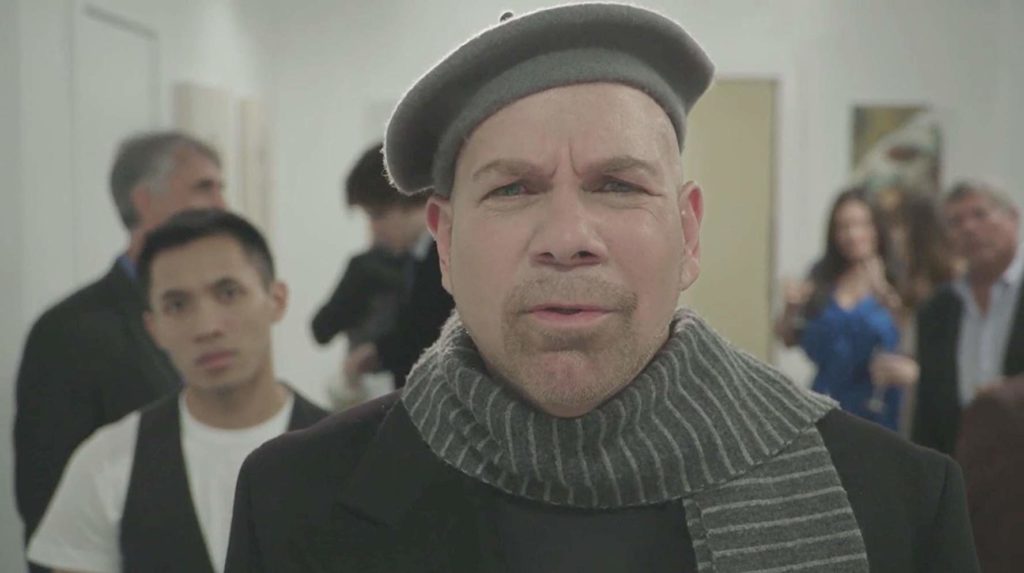
A real standout comes in the form of Jason Stuart as all-around critic and top dog in the social scene, Sheldon Crassus, who oozes over-the-top haughtiness with more than an air of self-importance. Vibrant, eye-popping costuming and an ever-present beret complete the look of Crassus, giving Stuart that extra scene-stealing oompf.
The heart of AMERICAN BISTRO comes from Arthur Diennet and Marcel Diennet as Edmund and Medor, respectively. Real-life father and son, their on-screen chemistry as nephew and uncle is real, resonant, and heartfelt. There is not a false note between them and watching and listening as Medor imparts ultimately learned life lessons to Edmund takes on a note of poignancy and gravitas. Arthur, bearing a striking resemblance to Zachary Quinto, has all the hallmarks of a Paul Rudd with his affable and sometimes befuddled everyman comedic take on Edmund.
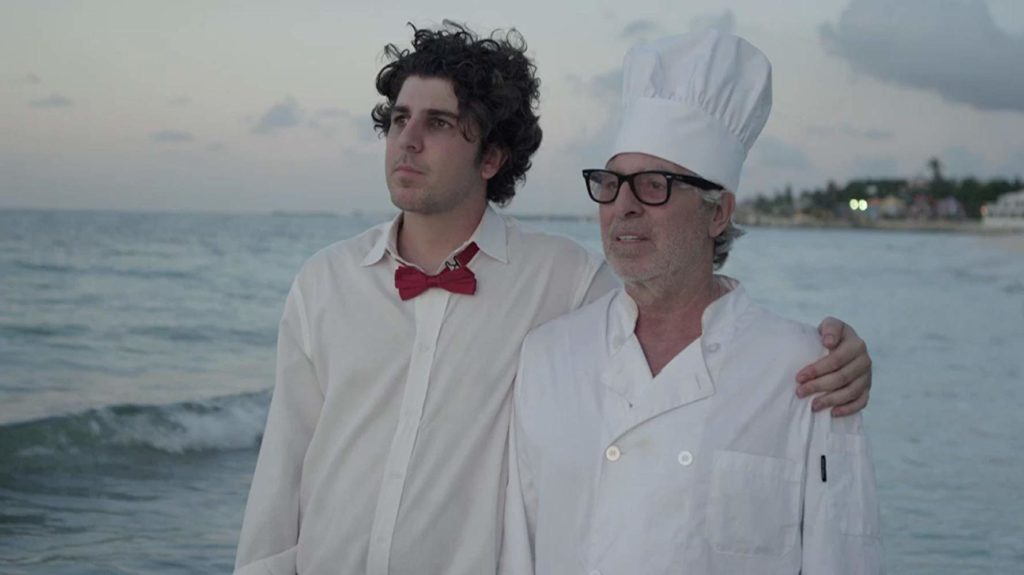
Performance is what director Arthur Diennet should have focused on and taken a step back from wearing all the additional hats as writer, director, editor, casting director, and producer. More cooks in this cinematic kitchen might have helped to hone in on themes and plot points, adjusting the recipe and making the plating of the film even more pleasing. Having said that, the crop of cinematographers at play here – Charlie Sarroff, Victor Tadashi Suarez, and N.L. Aubrey Smith, the latter responsible for some flashback sequences – do a more than admirable job. Lensing is crisp, clean, and straightforward, particularly in the restaurant sequences with food preparation and plating. The textures of brick walls, gleaming stainless steel, and coziness of a bistro create a welcoming visual tonal bandwidth.
As pleasing as the cinematography is, however, director Diennet runs into trouble with overuse of montage. Dream sequences take us out of the film and put us into what feels like – and resembles – a stage play with a spotlight focused on the dreamer against a black background, and one such dream of Edmund’s is, for lack of a better word, disturbing. The result is disjointed and lacks cohesiveness.
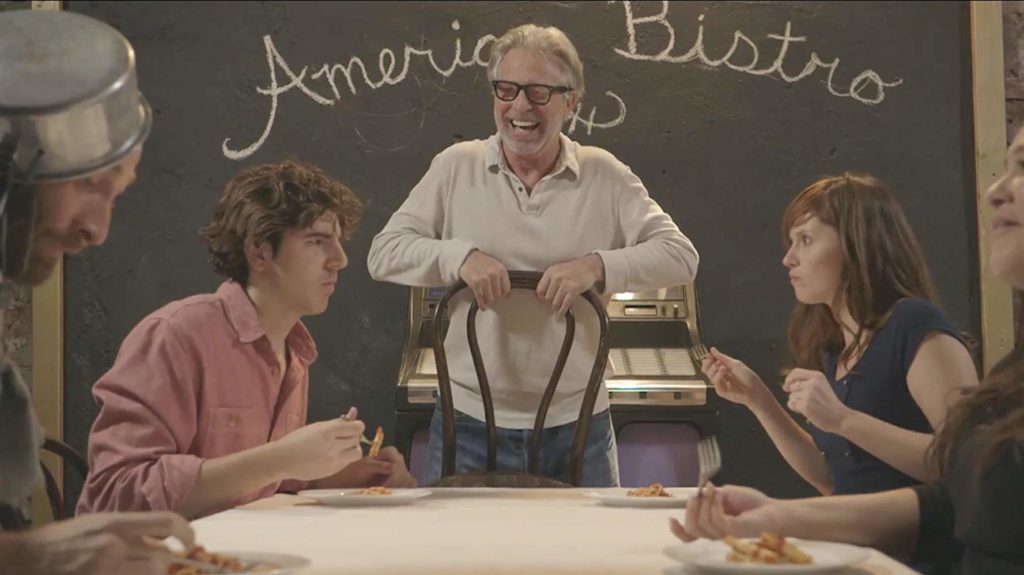
In addition to the relationship between Edmund and Medor, another aspect of AMERICAN BISTRO that soars is Avery Kentis’ score. It’s a perfect accompaniment that doesn’t play to the multiplicity of confusing commentaries within the script. Like any good meal, it is here for pure enjoyment.
All the ingredients are here for a tasty indie gem. But while some of those ingredients more than satisfy the senses, it’s the overall recipe for AMERICAN BISTRO that needed some adjustment and taste-testing before presentation. Nevertheless, it’s still worth a taste.
Written and Directed by Arthur Diennet
Cast: Arthur Diennet, Marcel Diennet, Jason Stuart, Bill Watterson, Megan Hensley, Ari Zagaris, Sam Dissanayake
by debbie elias, 08/11/2019











